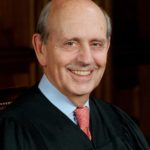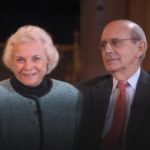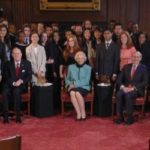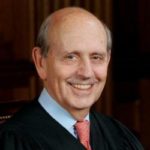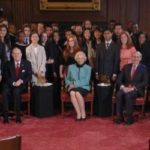Justice Stephen Breyer discusses the Constitution, Separation of Powers, and the role of the Supreme Court.
Our Constitution: A Conversation
A Conversation on Judicial Independence
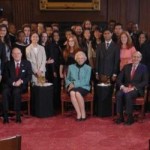
Justices Stephen G. Breyer, Anthony M. Kennedy and Sandra Day O’Connor and high school students discuss why an independent judiciary is necessary and how Article III, Section1, in the Constitution safeguards the role of judges. This video complements the documentary An Independent Judiciary: Cherokee Nation v. Georgia and Cooper v. Aaron.
A Conversation on the Importance of the Japanese Internment Cases
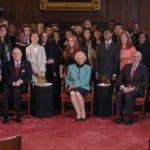
Justices Stephen G. Breyer, Sandra Day O’Connor and Anthony M. Kennedy discuss two landmark cases, Korematsu v. U.S. and Hirabayashi v. U.S., in which the Supreme Court tried to strike a balance between individual rights and national security during wartime. The cases stem from President Franklin Roosevelt’s 1942 executive order that mandated the relocation of Japanese and Japanese Americans to internment camps. This video complements the documentary Korematsu and Civil Liberties.
A Conversation on Freedom of Speech
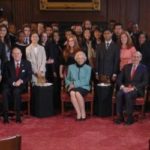
Justices Stephen G. Breyer, Anthony M. Kennedy and Sandra Day O’Connor and students discuss the First Amendment’s right to free speech, and in particular students’ free speech rights in the Supreme Court cases Tinker v. Des Moines Independent Community School District and Morse v. Frederick. In the Tinker case, students wore black armbands to school in silent protest of the Vietnam War. In the Morse case, a student held up a sign that said “Bong HITS 4 Jesus” at a parade.
A Conversation on the Constitution: Jury Service
A Conversation on Ledbetter v. Goodyear Tire and Rubber Co.
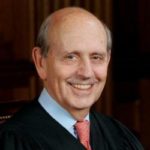
Justice Stephen G. Breyer and a group of high school students discuss separation of powers among the three branches of government in connection with the pay discrimination case that resulted in a 2009 law – the Lilly Ledbetter Fair Pay Act. The video complements the documentary A Call to Act: Ledbetter v. Goodyear Tire and Rubber Co.
The Nature of Dissent in the Supreme Court
A Conversation on the Right to Trial by an Impartial Jury
A Conversation on Judicial Interpretation
Justices Stephen G. Breyer and Antonin Scalia and a group of students discuss the different theories, primarily Originalism vs. The Living Constitution, of how to interpret and apply the Constitution to cases. A PDF lesson guide accompanies this video
